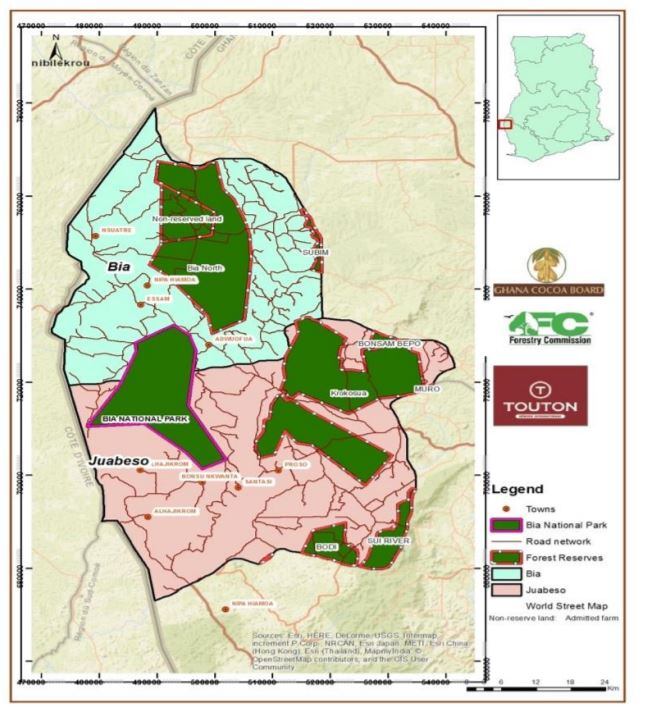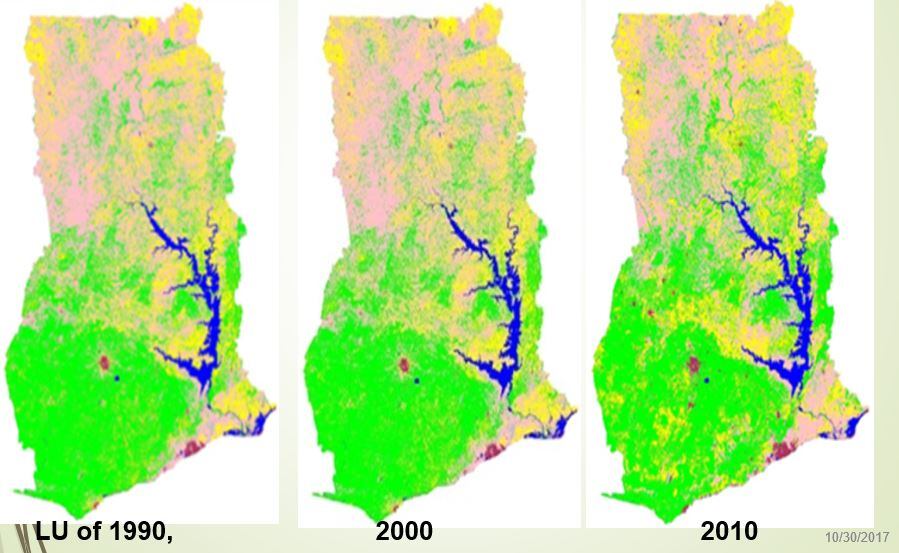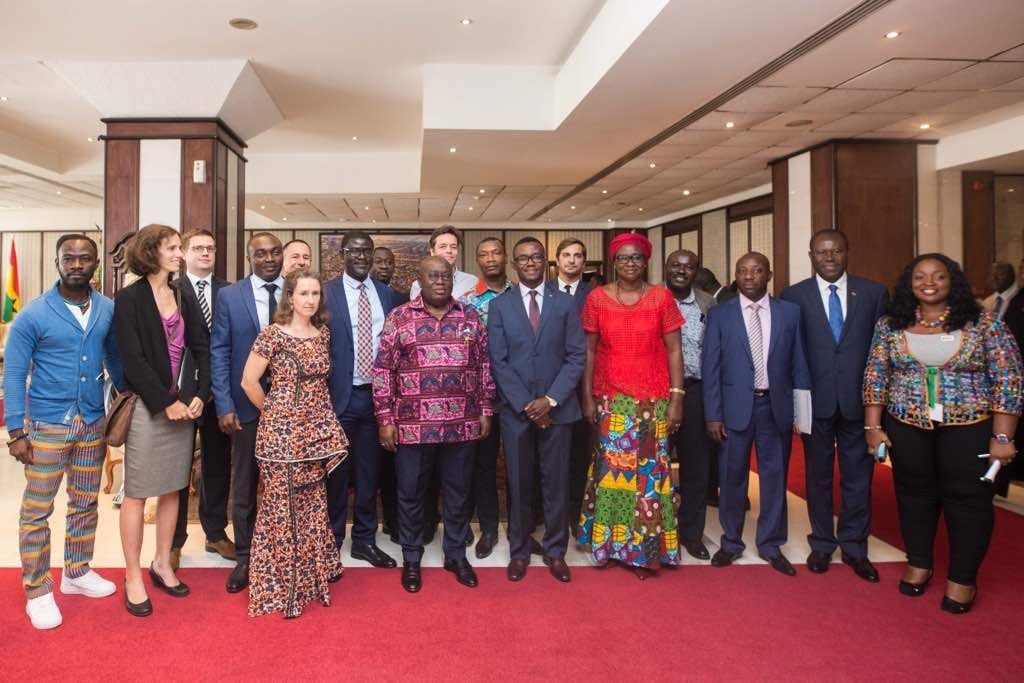The parties this month launched a project aiming to achieve a deforestation-free cocoa landscape in the Juabeso and Bia Districts of Western Ghana and to develop a market for climate-smart cocoa beans.
The ‘Partnership for Productivity Protection and Resilience in Cocoa Landscapes (PPRCL)’ project is in collaboration with The Ghana Forestry Commission, Agro Eco-Louis Bolk Institute, Nature Conservation Research Centre (NCRC) and SNV-Netherlands Development Organization.
Western Ghana and cocoa

The project covers an area of 243,561 hectares in the Bia West and Juaboso districts in Western Ghana. The districts are home to 130,000 people and produce around 60,000 MT of cocoa - 48,000 MT from Bia West and 12,000 MT from Juabeso. The Western Region of Ghana is home to the largest area of remaining primary forest in Ghana and produces over 50% of the country’s cocoa.
What is causing deforestation?
Ghana’s top agricultural export cocoa is the main driver of deforestation in the country, according to Touton.
Around 140,000 hectares of High Forest Zone (HFZ) is lost in Ghana each year, mainly driven by cocoa production.
Speaking to ConfectioneryNews, Joseph Larrose, sustainability director of Touton, said: "Cocoa accounts for 40% of deforestation in Ghana...There is extension of plantations [onto protected areas] because of low productivity.
"Farmers sell their land [usually to illegal mining operations] and then they encroach into the forest to grow new parcels of cocoa.”
Larrose said this led to a double impact: Illegal mining degrades land previously fertile for cocoa, while cocoa farmers encroach onto protected areas to support their families.
A recent report by non-profit Mighty Earth accused the cocoa and chocolate industry of a “laissez-farie”, approach to cocoa sourcing, which is threatening endangered species in Côte D’Ivoire and Ghana – the top cocoa-growing countries globally.
Agroforestry systems
Touton’s PPRCL project will support 60,000 cocoa farmers, some of whom are already growing cocoa in protected forests, and others at risk of moving into protected areas.
For those already on deforested land, Larrose said: "Over a period of time, 15-25 years, we want to intensively rebuild the agroforestry system through high shade cocoa.
"We'll support farmers to reconstitute the environment [in already cleared protected forests]."
This includes professionalizing farmers through training and providing access to planting materials such as shade trees and other food crops.


"Most of the farmers are growing cocoa as a monocrop. We want to promote diversification," said Larrose.
"If we are to have professional farmers, they need to grow more cocoa on less land and use the remaining land to diversify their source of income through cash crops or food crops,” he said.
Touton hopes to increase annual cocoa productivity from an average of 450 kg per hectare to 1 MT per hectare, through more resilient planting materials as well as good agricultural practice training. Touton will also incentivize farmers with a premium.
The same approach will be taken with farmers operating on legal land in the two districts.
Isabelle Adam, corporate relations at Touton, said: "The Ghanaian authorities are obviously intent on preventing any further encroachment. But this approach is not only sanction based, it’s also constructive in looking at ways of helping those farmers producing cocoa on [legal] land that is depleted to prevent further encroachment."
Touton in Ghana
Cocoa accounts for for around 60% French soft commodities trader Touton’s of annual revenues. It is also active in coffee and ingredients such as vanilla and spices. The company trades 400,000 metric tons (MT) of cocoa bean equivalents each year - 300,000 MT as beans and 100,000 MT as ingredients such as cocoa liquor. The company took over a factory in Tema, Ghana, two years ago to processes cocoa liquor, adding to its existing plant in Ghana. Touton sources around 180,000 MT a year from Ghana, the same amount from Côte D'Ivoire and smaller volumes from Nigeria and Cameroon.
Carbons funds and other stakeholders
Touton hopes the PPRCL project will preserve around 160,000 hectares of protected forest reserve.
The project will also engage stakeholders that have an impact on the landscape, including logging companies and village chiefs, not only cocoa farmers.
"We try to build a mitigation plan with each of these actors,” said Larrose.
The project is expected to reduce up to 2.3 million tons of carbon emissions each year up to 2020, which could generate $11.5m in carbon revenue from the Carbon Fund.
If Ghana demonstrates an impact in the next two to three years, it will receive funds for the amount of carbon sequestered - some of which should make it back to the cocoa farmers and local communities that achieved the impact.
The Ghanaian government is also working on a climate smart cocoa standard. Touton expects cocoa traders will eventually sell and market cocoa produced under the standard at a premium.
The PPRCL project will contribute to goals of the recently launched Cocoa and Forests Initiative – an industry-led initiative of 35 companies aiming to eradicate cocoa deforestation.
Touton said other companies are welcome to join the PPRCL project.
"We are encougaring anyone to join forces with us, including chocolate companies and other traders,” said Larrose.
